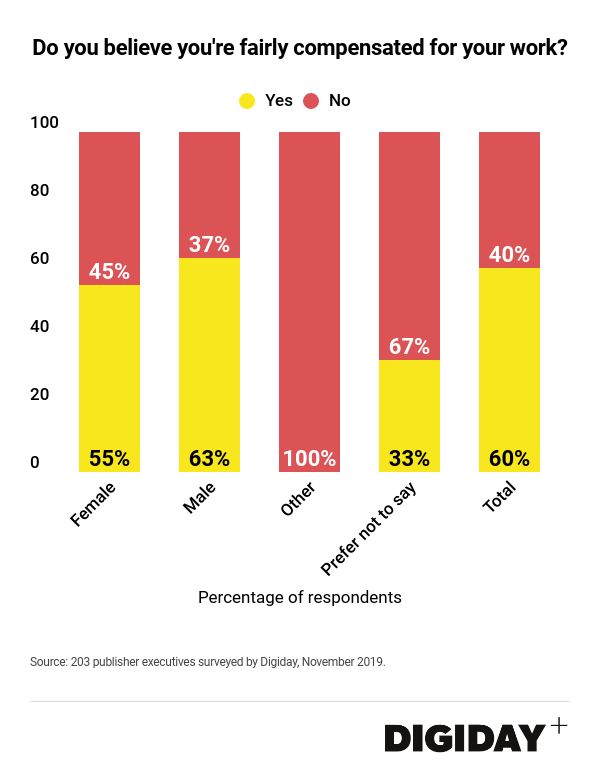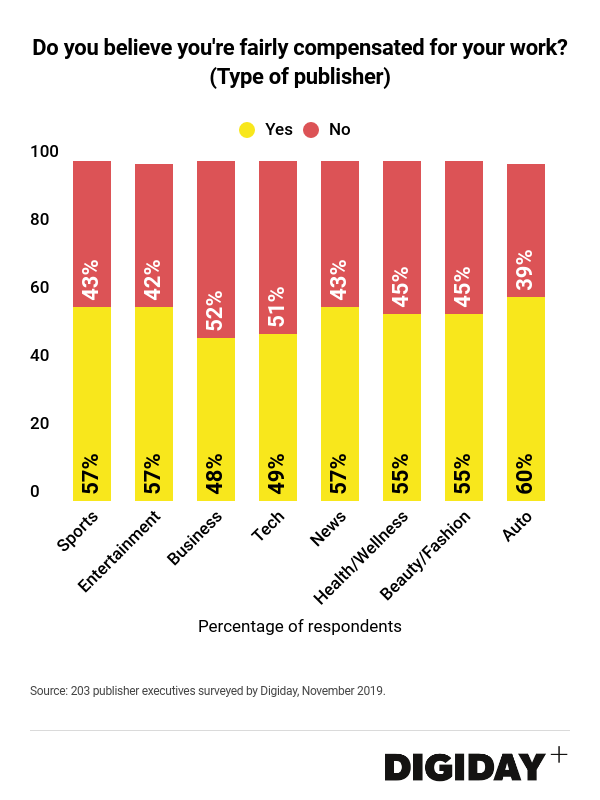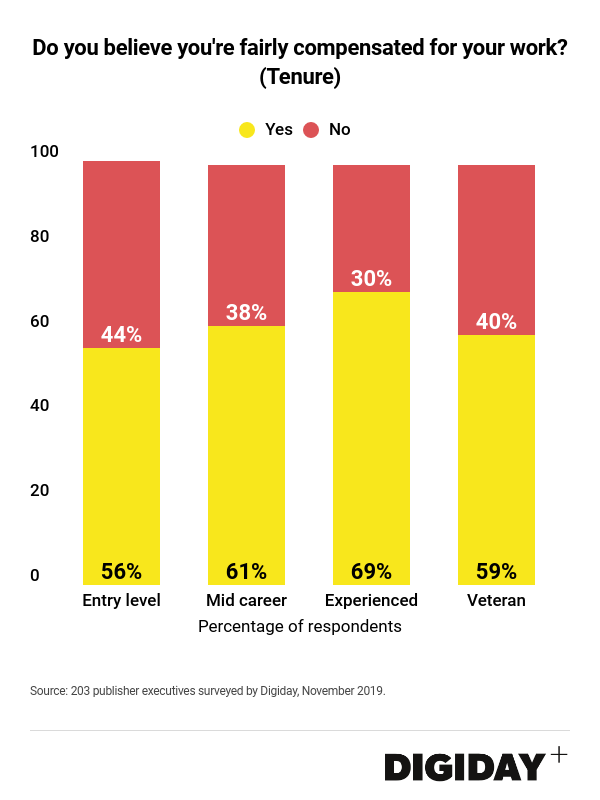Secure your place at the Digiday Media Buying Summit in Nashville, March 2-4
Digiday Research: 40% of publishing employees don’t think their compensation is fair

This research is based on unique data collected from our proprietary audience of publisher, agency, brand and tech insiders. It’s available to Digiday+ members. More from the series →
The majority of employees working in publishing believe they are fairly compensated for their work — but just barely.
Digiday Research surveyed 203 people working in publishing to ask about work, compensation and culture. Overall, 60% of respondents said they believed they were being fairly paid for the job they did. However, the results started to differ when broken down by gender.
Fifty-five percent of female employees believe their compensation is fair, compared to 63% of male employees.
 Of course, the type of publishing you’re involved with matters. Traditionally, roles in specialized, niche sectors have paid higher — and, are therefore, more likely to be seen as better places to get fairer competition.
Of course, the type of publishing you’re involved with matters. Traditionally, roles in specialized, niche sectors have paid higher — and, are therefore, more likely to be seen as better places to get fairer competition.
Technology and business publisher employees were slightly more likely than others to say that their compensation wasn’t fair. Comparatively, sports and entertainment, news, health, beauty and automotive focused publishers were likelier to say their compensation was fairer.
Compensation mostly rises as you get more experience, and the people most likely to think they were unfairly compensated were entry-level — those Digiday classifies as between zero and four years of experience. About 44% of them think they are not compensated fairly, compared with 38% of mid-career (five to 14 years) employees, and 30% of experienced (15-19 years) employees.
More in Media

Digiday+ Research: Dow Jones, Business Insider and other publishers on AI-driven search
This report explores how publishers are navigating search as AI reshapes how people access information and how publishers monetize content.

In Graphic Detail: AI licensing deals, protection measures aren’t slowing web scraping
AI bots are increasingly mining publisher content, with new data showing publishers are losing the traffic battle even as demand grows.

In Graphic Detail: The scale of the challenge facing publishers, politicians eager to damage Google’s adland dominance
Last year was a blowout ad revenue year for Google, despite challenges from several quarters.







